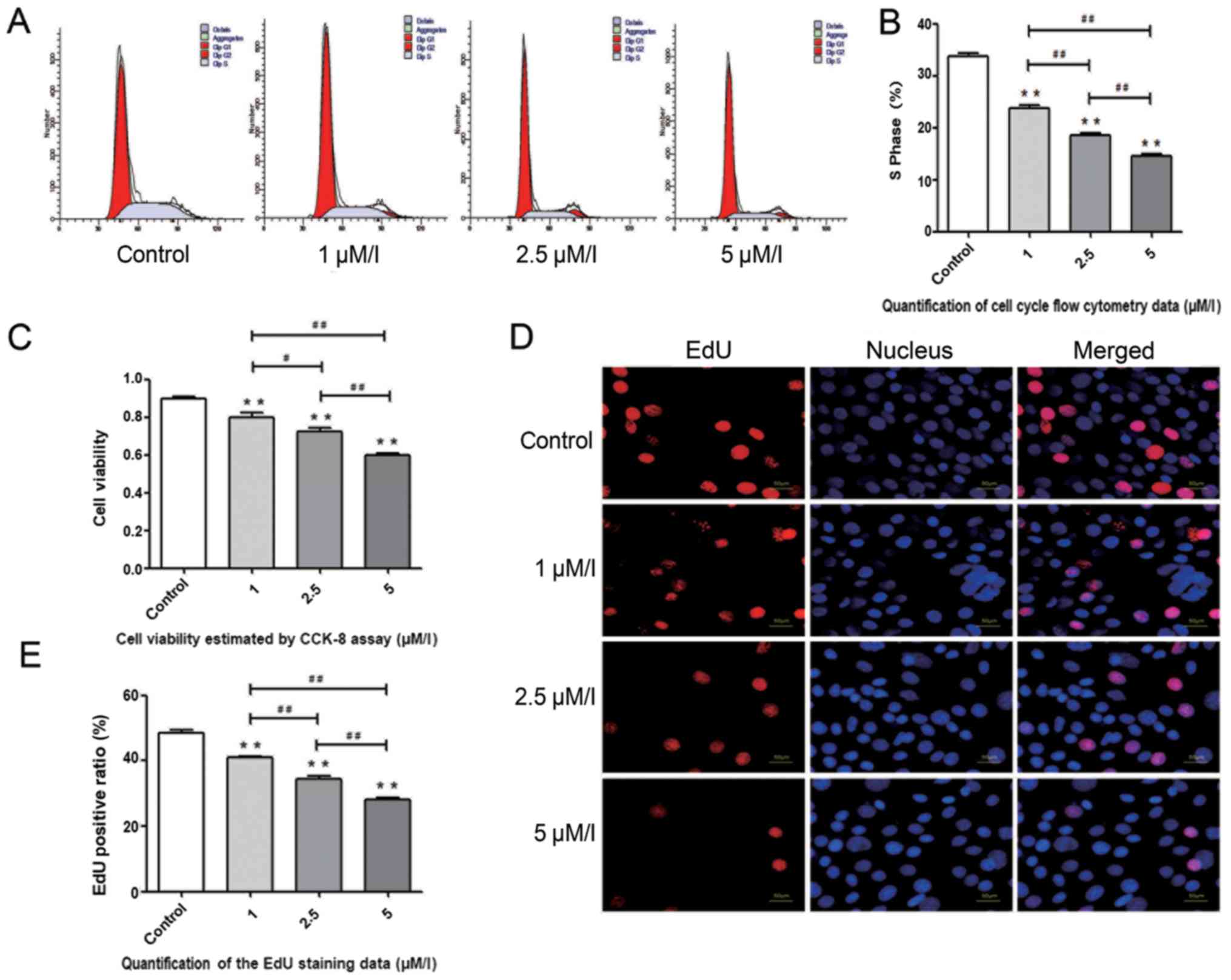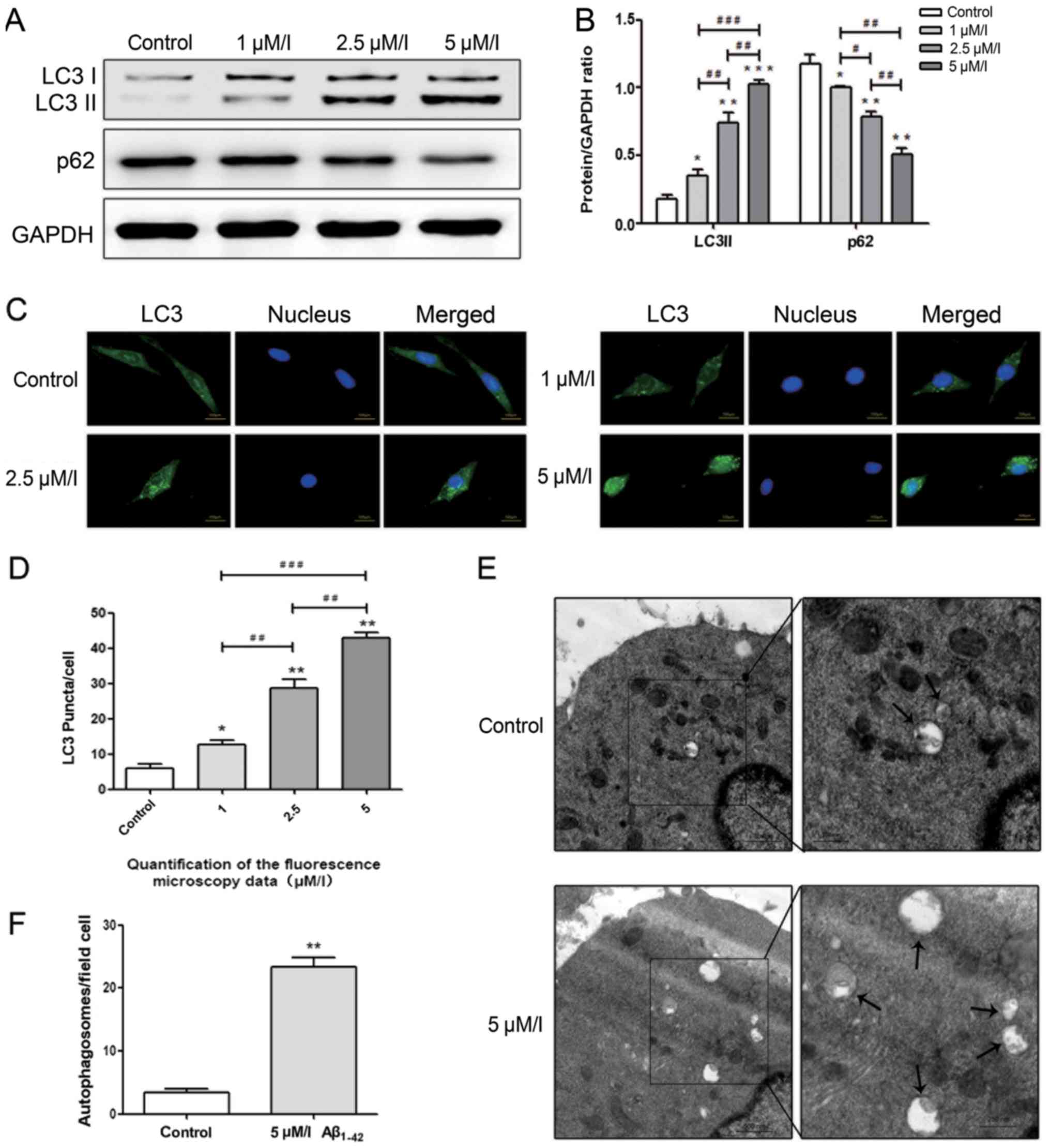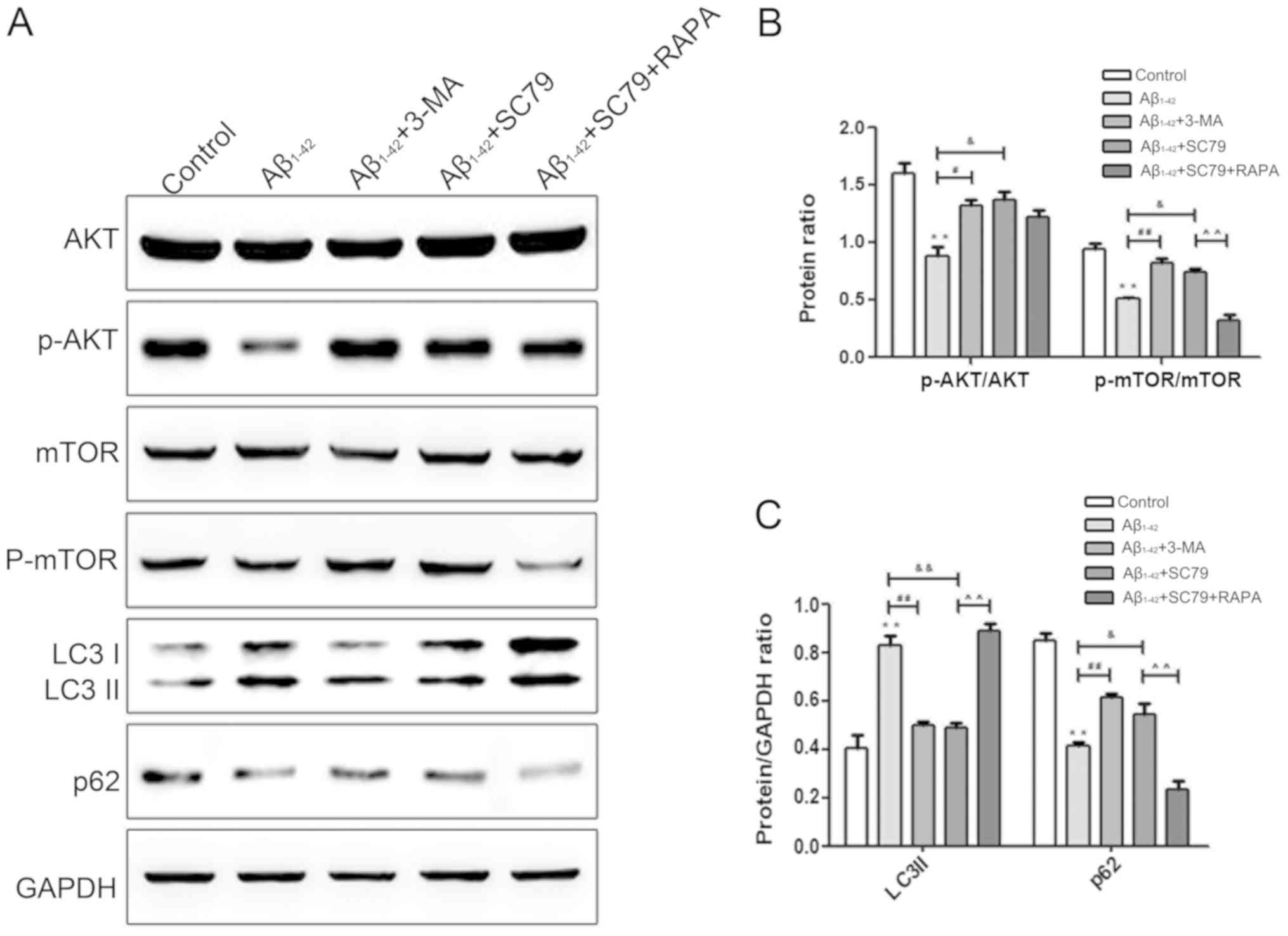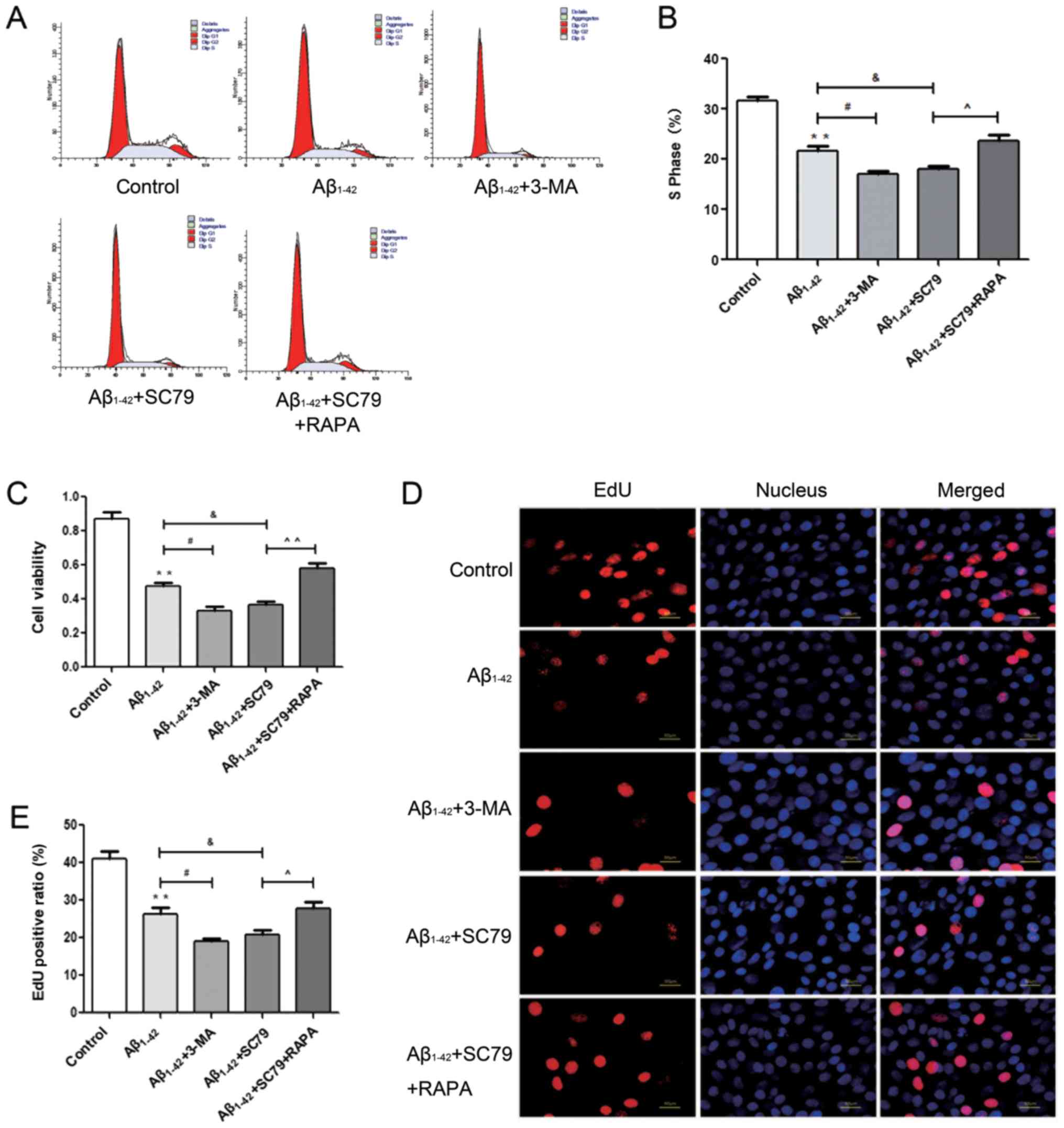|
1
|
Roos PM: Osteoporosis in
neurodegeneration. J Trace Elem Med Biol. 28:418–421. 2014.
View Article : Google Scholar : PubMed/NCBI
|
|
2
|
Zhou R, Deng J, Zhang M, Zhou HD and Wang
YJ: Association between bone mineral density and the risk of
Alzheimer's disease. J Alzheimers Dis. 24:101–108. 2011. View Article : Google Scholar : PubMed/NCBI
|
|
3
|
Zha Y, Shen L and Ji HF: Osteoporosis risk
and bone mineral density levels in patients with Parkinson's
disease: A meta-analysis. Bone. 52:498–505. 2013. View Article : Google Scholar : PubMed/NCBI
|
|
4
|
Sato Y, Honda Y, Asoh T, Kikuyama M and
Oizumi K: Hypovitaminosis D and decreased bone mineral density in
amyotrophic lateral sclerosis. Eur Neurol. 37:225–229. 1997.
View Article : Google Scholar : PubMed/NCBI
|
|
5
|
Weinstockguttman B, Gallaghe E, Baier M,
Green L, Feichter J, Patrick K, Miller C, Wrest K and Ramanathan M:
Risk of bone loss in men with multiple sclerosis. Mult Scler.
10:170–175. 2004. View Article : Google Scholar : PubMed/NCBI
|
|
6
|
Tysiewicz-Dudek M, Pietraszkiewicz F and
Drozdzowska B: Alzheimer's disease and osteoporosis: Common risk
factors or one condition predisposing to the other? Ortop Traumatol
Rehabili. 10:315–323. 2008.(In English, Polish).
|
|
7
|
Peters R, Peters J, Warner J, Beckett N
and Bulpitt C: Alcohol, dementia and cognitive decline in the
elderly: A systematic review. Age Ageing. 37:505–512. 2008.
View Article : Google Scholar : PubMed/NCBI
|
|
8
|
Cataldo JK, Prochaska JJ and Glantz SA:
Cigarette smoking is a risk factor for Alzheimer's Disease: An
analysis controlling for tobacco industry affiliation. J Alzheimers
Dis. 19:465–480. 2010. View Article : Google Scholar : PubMed/NCBI
|
|
9
|
Yang MW, Wang TH, Yan PP, Chu LW, Yu J,
Gao ZD, Li YZ and Guo BL: Curcumin improves bone microarchitecture
and enhances mineral density in APP/PS1 transgenic mice.
Phytomedicine. 18:205–213. 2011. View Article : Google Scholar : PubMed/NCBI
|
|
10
|
Li S, Liu B, Zhang L and Rong L: Amyloid
beta peptide is elevated in osteoporotic bone tissues and enhances
osteoclast function. Bone. 61:164–175. 2014. View Article : Google Scholar : PubMed/NCBI
|
|
11
|
Kuperstein I, Broersen K, Benilova I,
Rozenski J, Jonckheere W, Debulpaep M, Vandersteen A, Segers-Nolten
I, Van Der Werf K, Subramaniam V, et al: Neurotoxicity of
Alzheimer's disease Aβ peptides is induced by small changes in the
Aβ42 to Aβ40 ratio. EMBO J. 29:3408–3420. 2014. View Article : Google Scholar
|
|
12
|
Song C, Song C and Tong F: Autophagy
induction is a survival response against oxidative stress in bone
marrow-derived mesenchymal stromal cells. Cytotherapy.
16:1361–1370. 2014. View Article : Google Scholar : PubMed/NCBI
|
|
13
|
Wan Y, Zhuo N, Li Y, Zhao W and Jiang D:
Autophagy promotes osteogenic differentiation of human bone marrow
mesenchymal stem cell derived from osteoporotic vertebrae. Biochem
Biophys Res Commun. 488:46–52. 2017. View Article : Google Scholar : PubMed/NCBI
|
|
14
|
Barbero-Camps E, Roca-Agujetas V,
Bartolessis I, de Dios C, Fernandez-Checa JC, Mari M, Morales A,
Hartmann T and Colell A: Cholesterol impairs autophagy-mediated
clearance of amyloid beta while promoting its secretion. Autophagy.
14:1129–1154. 2018. View Article : Google Scholar : PubMed/NCBI
|
|
15
|
Schmelzle T and Hall MN: TOR, a central
controller of cell growth. Cell. 103:253–262. 2000. View Article : Google Scholar : PubMed/NCBI
|
|
16
|
Hu B, Zhang Y, Jia L, Wu H, Fan C, Sun Y,
Ye C, Liao M and Zhou J: Binding of the pathogen receptor HSP90AA1
to avibirnavirus VP2 induces autophagy by inactivating the AKT-MTOR
pathway. Autophagy. 11:503–515. 2015. View Article : Google Scholar : PubMed/NCBI
|
|
17
|
Lee EO, Kang JL and Chong YH: The
amyloid-beta peptide suppresses transforming growth
factor-beta1-induced matrix metalloproteinase-2 production via
Smad7 expression in human monocytic THP-1 cells. J Biol Chem.
280:7845–7853. 2005. View Article : Google Scholar : PubMed/NCBI
|
|
18
|
Squitti R: Metals in Alzheimer's disease:
A systemic perspective. Front Biosci. 17:451–472. 2012. View Article : Google Scholar
|
|
19
|
Brewer GJ: Alzheimer's disease causation
by copper toxicity and treatment with zinc. Front Aging Neurosci.
6:922014. View Article : Google Scholar : PubMed/NCBI
|
|
20
|
Dusek P, Roos PM, Litwin T, Schneider SA,
Flaten TP and Aaseth J: The neurotoxicity of iron, copper and
manganese in Parkinson's and Wilson's diseases. J Trace Elem Med
Biol. 31:193–203. 2015. View Article : Google Scholar : PubMed/NCBI
|
|
21
|
Roos PM, Vesterberg O, Syversen T, Flaten
TP and Nordberg M: Metal concentrations in cerebrospinal fluid and
blood plasma from patients with amyotrophic lateral sclerosis. Biol
Trace Elem Res. 151:159–170. 2013. View Article : Google Scholar : PubMed/NCBI
|
|
22
|
LeVine SM, Bilgen M and Lynch SG: Iron
accumulation in multiple sclerosis: An early pathogenic event.
Expert Rev Neurother. 13:247–250. 2013. View Article : Google Scholar : PubMed/NCBI
|
|
23
|
Zhu G, Wang H, Shi Y, Weng S, Jin T, Kong
Q and Nordberg GF: Environmental cadmium exposure and forearm bone
density. Biometals. 17:499–503. 2004. View Article : Google Scholar : PubMed/NCBI
|
|
24
|
Akesson A, Bjellerup P, Lundh T, Lidfeldt
J, Nerbrand C, Samsioe G, Skerfving S and Vahter M: Cadmium-induced
effects on bone in a population-based study of women. Environ
Health Perspect. 114:830–834. 2006. View Article : Google Scholar : PubMed/NCBI
|
|
25
|
Wang HK, Hung CM, Lin SH, Tai YC, Lu K,
Liliang PC, Lin CW, Lee YC, Fang PH and Chang LC: Increased risk of
hip fractures in patients with dementia: A nationwide
population-based study. Bmc Neurol. 14:1752014. View Article : Google Scholar : PubMed/NCBI
|
|
26
|
Zhao Y, Shen L and Ji HF: Alzheimer's
disease and risk of hip fracture: A meta-analysis study.
ScientificWorldJournal. 2012:8721732012. View Article : Google Scholar : PubMed/NCBI
|
|
27
|
Zhao L, Liu S, Wang Y, Zhang Q, Zhao W,
Wang Z and Yin M: Effects of Curculigoside on Memory Impairment and
Bone Loss via Anti-Oxidative Character in APP/PS1 Mutated
Transgenic Mice. PLoS One. 10:e01332892015. View Article : Google Scholar : PubMed/NCBI
|
|
28
|
Xia WF, Jung JU, Cui S, Xiong S, Xiong L,
Shi XM, Mei L and Xiong WC: Swedish mutant APP suppresses
osteoblast differentiation and causes osteoporotic deficit, which
are ameliorated by N-acetyl-L-cysteine. J Bone Miner Res.
28:2122–2135. 2013. View Article : Google Scholar : PubMed/NCBI
|
|
29
|
Zhou Z, Immel D, Xi CX, Bierhaus A, Feng
X, Mei L, Nawroth P, Stern DM and Xiong WC: Regulation of
osteoclast function and bone mass by RAGE. J Exp Med.
203:1067–1080. 2006. View Article : Google Scholar : PubMed/NCBI
|
|
30
|
Cui S, Xiong F, Hong Y, Jung JU, Li XS,
Liu JZ, Yan R, Mei L, Feng X and Xiong WC: APPswe/Aβ regulation of
osteoclast activation and RAGE expression in an age-dependent
manner. J Bone Miner Res. 26:1084–1098. 2011. View Article : Google Scholar : PubMed/NCBI
|
|
31
|
L S, Yang B, Teguh D, Zhou L, Xu J and
Rong L: Amyloid β peptide enhances RANKL-induced osteoclast
activation through NF-κB, ERK, and calcium oscillation signaling.
International J Mol Sci. 17:16832016. View Article : Google Scholar
|
|
32
|
Hardy J: Alzheimer's disease: The amyloid
cascade hypothesis: An update and reappraisal. J Alzheimers Dis. 9
(3 Suppl):S151–S153. 2006. View Article : Google Scholar
|
|
33
|
Haass C and Selkoe DJ: Soluble protein
oligomers in neurodegeneration: lessons from the Alzheimer's
amyloid beta-peptide. Nat Rev Mol Cell Biol. 8:101–112. 2007.
View Article : Google Scholar : PubMed/NCBI
|
|
34
|
Lee IS, Jung K, Kim IS and Park KI:
Amyloid-β oligomers regulate the properties of human neural stem
cells through GSK-3β signaling. Exp Mol Med. 45:e602013. View Article : Google Scholar : PubMed/NCBI
|
|
35
|
Levine B: Autophagy in the pathogenesis of
disease. Cell. 132:27–42. 2008. View Article : Google Scholar : PubMed/NCBI
|
|
36
|
Mizushima N, Levine B, Cuervo AM and
Klionsky DJ: Autophagy fights disease through cellular
self-digestion. Nature. 451:10692008. View Article : Google Scholar : PubMed/NCBI
|
|
37
|
Rubinsztein DC, Codogno P and Levin B:
Autophagy modulation as a potential therapeutic target for diverse
diseases. Nat Rev Drug Dis. 11:709–730. 2012. View Article : Google Scholar
|
|
38
|
Kim I and Lemasters JJ: Mitochondrial
degradation by autophagy (mitophagy) in GFP-LC3 transgenic
hepatocytes during nutrient deprivation. Am J Physiol Cell Physiol.
300:C3082011. View Article : Google Scholar : PubMed/NCBI
|
|
39
|
Lee J: Neuronal Autophagy: A housekeeper
or a fighter in neuronal cell survival? Exp Neurobiol. 21:1–8.
2012. View Article : Google Scholar : PubMed/NCBI
|
|
40
|
Shenab HM: Autophagy is a survival force
via suppression of necrotic cell death. Exp Cell Res.
318:1304–1308. 2012. View Article : Google Scholar : PubMed/NCBI
|
|
41
|
Loos B, Engelbrecht AM, Lockshin RA,
Klionsky DJ and Zakeri Z: The variability of autophagy and cell
death susceptibility. Autophagy. 9:1270–1285. 2013. View Article : Google Scholar : PubMed/NCBI
|
|
42
|
Klionsky DJ, Abdelmohsen K, Abe A, Abedin
MJ, Abeliovich H, Acevedo Arozena A, Adachi H, Adams CM, Adams PD,
Adeli K, et al: Guidelines for the use and interpretation of assays
for monitoring autophagy. (3rd). Autophagy. 12:1–222. 2016.
View Article : Google Scholar : PubMed/NCBI
|
|
43
|
Pajak B, Songin M, Strosznajder JB,
Orzechowski A and Gajkowska B: Ultrastructural evidence of amyloid
β-induced autophagy in PC12 cells. Folia Neuropathol. 47:252–258.
2009.PubMed/NCBI
|
|
44
|
Neill CO: PI3-kinase/Akt/mTOR signaling:
Impaired on/off switches in aging, cognitive decline and
Alzheimer's disease. Exp Gerontol. 48:647–653. 2013. View Article : Google Scholar : PubMed/NCBI
|
|
45
|
Griffin RJ, Moloney A, Kelliher M,
Johnston JA, Ravid R, Dockery P, O'Connor R and O'Neill C:
Activation of Akt/PKB, increased phosphorylation of Akt substrates
and loss and altered distribution of Akt and PTEN are features of
Alzheimer's disease pathology. J Neurochem. 93:105–117. 2005.
View Article : Google Scholar : PubMed/NCBI
|
|
46
|
Levine B and Yuan J: Autophagy in cell
death. An innocent convict J Clin Invest. 115:2679–2688. 2005.
View Article : Google Scholar : PubMed/NCBI
|
|
47
|
Alva AS, Gultekin SH and Baehrecke EH:
Autophagy in human tumors: Cell survival or death? CellDeath
Differ. 11:1046–1048. 2004.
|
|
48
|
Platini F, Pérez-tomás R, Ambrosio S and
Tessitore L: Understanding autophagy in cell death control. Curr
Pharm Des. 16:101–113. 2010. View Article : Google Scholar : PubMed/NCBI
|
|
49
|
Denton D, Xu T and Kumar S: Autophagy as a
pro-death pathway. Immunol Cell Biol. 93:35–42. 2015. View Article : Google Scholar : PubMed/NCBI
|
|
50
|
Mariño G, Madeo F and Kroemer G: Autophagy
for tissue homeostasis and neuroprotection. Curr Opin Cell Biol.
23:198–206. 2011. View Article : Google Scholar : PubMed/NCBI
|
|
51
|
Annabi B, Lee YT, Turcotte S, Naud E,
Desrosiers RR, Champagne M, Eliopoulos N, Galipeau J and Béliveau
R: Hypoxia Promotes Murine Bone-Marrow-Derived Stromal Cell
Migration and Tube Formation. Stem Cells. 21:337–347. 2010.
View Article : Google Scholar
|
|
52
|
Wang S, Zhou SL, Min FY, Ma JJ, Shi XJ,
Bereczki E and Wu J: mTOR-mediated hyperphosphorylation of tau in
the hippocampus is involved in cognitive deficits in
streptozotocin-induced diabetic mice. Metab Brain Dis. 29:729–736.
2014. View Article : Google Scholar : PubMed/NCBI
|
|
53
|
Ronsisvalle N, Di Benedetto G, Parenti C,
Amoroso S, Bernardini R and Cantarella G: CHF5074 protects SH-SY5Y
human neuronal-like cells from amyloidbeta 25–35 and tumor necrosis
factor related apoptosis inducing ligand toxicity in vitro. Current
Alzheimer Res. 11:714–724. 2014. View Article : Google Scholar
|
|
54
|
Caccamo A, Majumder S, Richardson A,
Strong R and Oddo S: Molecular Interplay between Mammalian Target
of Rapamycin (mTOR), Amyloid-beta, and Tau: Effects On Cognitive
Impairments. J Biol Chem. 285:13107–13120. 2010. View Article : Google Scholar : PubMed/NCBI
|


















